Disclosure: This article contains affiliate links. We may earn a commission from purchases at no extra cost to you, which helps our travel content.
The morning light in Antsirabe has a quality that filmmakers dream about—crisp, golden, and revealing of textures often missed by the casual observer. I first arrived in this highland city twenty years ago while location scouting for a National Geographic documentary on Madagascar's unique ecosystems. What began as a brief stopover evolved into a decades-long relationship with this volcanic heartland that has become an unexpected hub for international business travelers. At 1,500 meters above sea level, Antsirabe offers a refreshing escape from Madagascar's coastal heat, with its colonial architecture, thermal springs, and vibrant artisan communities providing a distinctive backdrop for corporate endeavors. As someone who has navigated both creative projects and business negotiations in this highland gem, I'm delighted to share my field notes for the corporate traveler who finds themselves with a meeting schedule—and hopefully some precious downtime—in Madagascar's third-largest city.
Setting Up Base: Business-Friendly Accommodations
Unlike Antananarivo's bustling hotel scene, Antsirabe offers a more curated selection of accommodations that cater to business travelers seeking functionality without sacrificing character. My personal favorite remains the Couleur Café, a restored colonial villa where the gardens provide natural sound insulation from the pousse-pousse (rickshaw) traffic that characterizes the city center. The property offers reliable Wi-Fi—a crucial consideration in Madagascar—and private garden spaces perfect for informal meetings.
For longer stays, consider the Hotel des Thermes, a grand colonial-era establishment that has hosted everyone from French diplomats to international mining executives. While the architecture speaks of another era, the business center has been thoughtfully modernized. I've edited rough cuts of documentary footage from their conference rooms during monsoon season downpours without a single connectivity issue—a rare luxury in Madagascar.
If your meetings require more sophisticated presentation capabilities, the Royal Palace Hotel offers the most comprehensive technical setup, including projector systems and dedicated IT support. I always pack my portable projector as backup—it's saved numerous presentations when venue technology proved incompatible with international adapters or unexpected power fluctuations occurred.
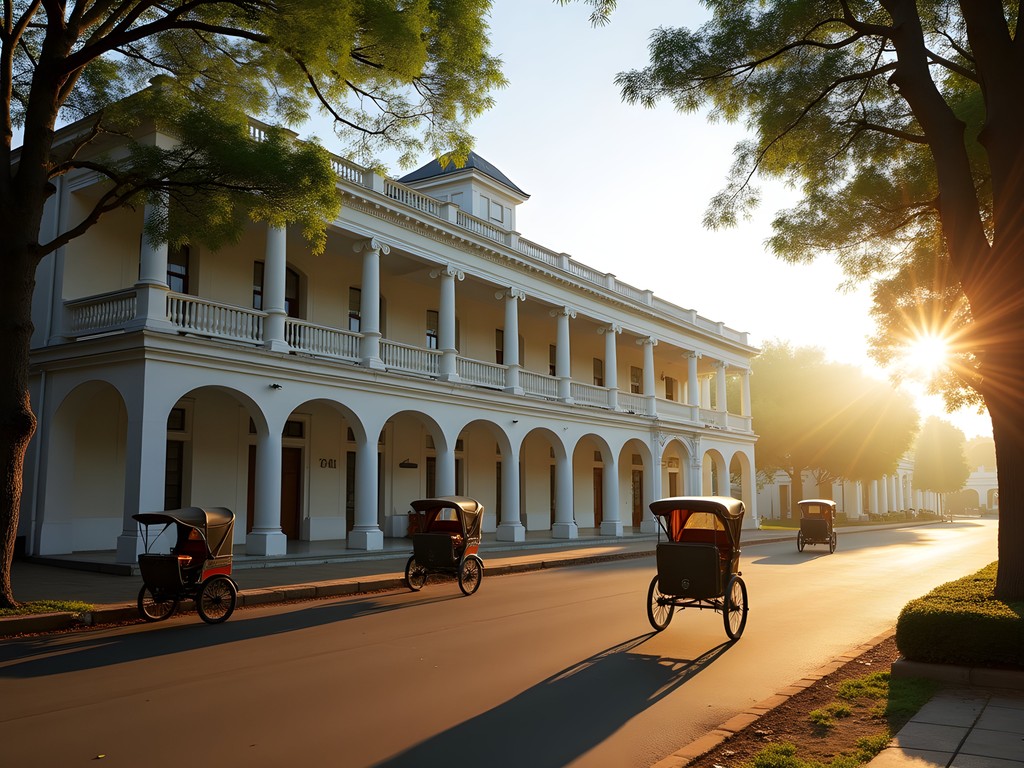
💡 Pro Tips
- Request rooms on the eastern side of hotels for quieter mornings away from the market sounds
- Confirm your accommodation's generator schedule—power outages are common but predictable
- Most hotels can arrange reliable drivers for business appointments—negotiate a daily rate rather than per-trip
Cultural Intelligence: Business Etiquette in the Highlands
Madagascar's business culture represents a fascinating blend of French colonial influence, traditional Malagasy values, and emerging international standards. In Antsirabe specifically, I've found that understanding the nuances of fady (taboos) and hierarchical respect can make or break business relationships.
Meetings in Antsirabe operate on what I've come to call 'highland time'—more punctual than coastal Madagascar but still fluid by European or American standards. Expect a 15-30 minute grace period for arrivals, particularly for morning appointments. This isn't disrespect but rather a practical adaptation to the city's transportation rhythms and family obligations.
Business cards remain essential currency here—bring plenty and present them with both hands as a sign of respect. I've custom-designed mine with a subtle embossed pattern inspired by local zebu horn carvings, which invariably becomes a conversation starter. For extended business stays, consider having a batch printed locally with Malagasy translation on the reverse—a gesture that demonstrates commitment to the relationship.
Dress code deserves special mention: while Antsirabe's climate is cooler than much of Madagascar, formal business attire can still feel excessive. Men typically wear light suits without ties, while women opt for conservative dresses or pantsuits. I've found a lightweight blazer in natural fabrics paired with tailored pants strikes the right balance between professional presentation and practical comfort for the highland climate.

💡 Pro Tips
- Learn basic Malagasy greetings—'Manao ahoana' (hello) and 'Misaotra' (thank you) go a long way
- Schedule important meetings between Tuesday and Thursday; Mondays and Fridays often see extended weekends
- Gift-giving is appreciated but should be modest—locally made crafts from another region of Madagascar are ideal
Connectivity Challenges: Staying Productive Between Meetings
The greatest challenge for business travelers in Antsirabe remains reliable connectivity. While the situation has improved dramatically over the past decade, preparation remains essential. Most hotels advertise Wi-Fi, but bandwidth and reliability vary wildly. During my last production meeting at Hotel Royal Palace, our video conference with European investors required three backup plans.
I've developed a connectivity kit that has saved countless critical communications: a portable hotspot with a local SIM card (Telma offers the best coverage in the highlands), paired with a signal booster for rural excursions. This combination has allowed me to conduct video interviews from remote artisan workshops and upload footage from locations where even phone calls would typically fail.
For critical documents and presentations, I maintain local copies on both my laptop and tablet, never assuming cloud access will be available. The city experiences regular power fluctuations, particularly during the rainy season (November through March), so scheduling important virtual meetings during morning hours typically yields better results.
Antsirabe has several dedicated work spaces that cater to international business travelers. My preference is Café Diamant, where the baristas understand the sacred relationship between productivity and properly brewed coffee. They maintain a generator and separate business internet connection distinct from their customer Wi-Fi—access requires a minimum order and small fee, but the reliability justifies the cost during critical work periods.

💡 Pro Tips
- Purchase a Telma SIM card immediately upon arrival for the best highland coverage
- Download offline maps, translation tools, and any cloud documents before leaving major cities
- Schedule bandwidth-intensive tasks (video calls, large file transfers) for early morning hours (6-9am) when network traffic is lightest
Productive Downtime: Engaging with Local Industries
The mark of a seasoned business traveler is knowing how to transform inevitable schedule gaps into opportunities for deeper cultural understanding and relationship building. Antsirabe offers rich possibilities for productive downtime that transcend typical tourist activities.
The city is renowned for its artisan workshops, particularly those specializing in zebu horn crafting, gemstone cutting, and textile production. These aren't merely tourist attractions but functioning industries that welcome professional engagement. During post-production delays on my Malagasy crafts documentary, I arranged visits to several workshops with local business contacts—experiences that evolved into valuable supply chain relationships for European design houses I later introduced to the region.
Particularly impressive is the Atelier de Corne workshop, where artisans transform zebu horns into everything from jewelry to functional homewares. The workshop manager, Jean-Pierre, offers business-focused tours that emphasize production processes and export considerations rather than the typical tourist presentation.
For those in manufacturing or sustainability sectors, the recycled paper production facility at Antaimoro Paper Factory provides fascinating insights into how traditional techniques are being adapted for modern markets. I've brought several European film production companies here to source sustainable packaging for their media materials.
These industrial visits serve multiple purposes: they provide context for understanding the regional economy, create natural opportunities for building relationships with local business leaders, and offer refreshing mental breaks from meeting rooms and digital screens. I always carry my compact camera during these excursions—its discreet profile doesn't disrupt the professional atmosphere while allowing me to document production techniques that might be relevant to future collaborations.
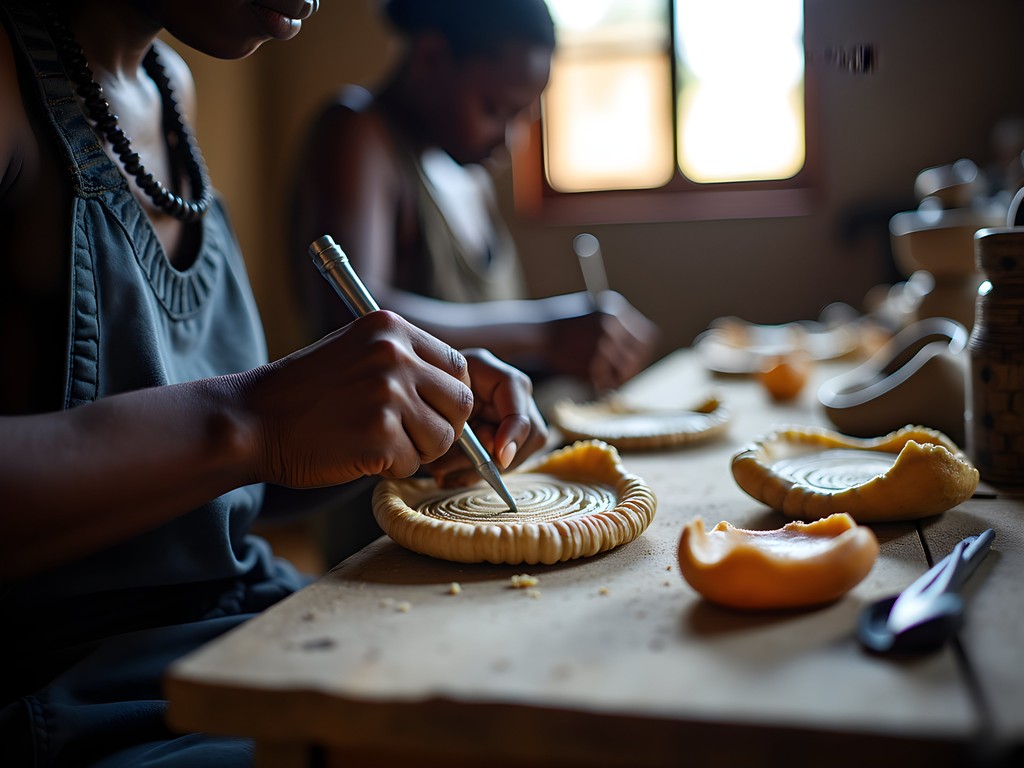
💡 Pro Tips
- Arrange industrial visits through your hotel's business concierge rather than tour companies for a more professional focus
- Exchange contact information with workshop managers—these connections often prove valuable for future projects or referrals
- Allow at least two hours for workshop visits to move beyond surface presentations to meaningful professional exchange
Navigating Transportation: Efficiency in a Rickshaw City
Antsirabe presents a unique transportation ecosystem that business travelers must adapt to quickly. The city is famous for its colorful pousse-pousse (hand-pulled rickshaws), which remain the dominant form of inner-city transportation. While these iconic vehicles might seem charming for tourism, they present practical challenges for business schedules and professional presentation.
For meetings within the central business district, pousse-pousse can actually be the most efficient option during peak traffic hours, as they navigate congested streets with remarkable agility. I recommend establishing a relationship with a specific pousse-pousse driver for the duration of your stay—most hotels can arrange this. My regular driver, Hery, has become so familiar with my filming schedule that he instinctively knows which equipment needs extra protection during Antsirabe's frequent afternoon showers.
For destinations beyond the city center or when time is critical, pre-arranged taxi services are essential. App-based ride services have limited presence here, so relationships matter. The most reliable service for business travelers is Taxi Mazana, which maintains a fleet of well-maintained vehicles and drivers with basic English proficiency. Request their business card upon arrival and schedule critical transfers at least 24 hours in advance.
For meetings that require visits to multiple sites or facilities outside the city, consider arranging a dedicated driver for the day. Expect to pay 200,000-350,000 Ariary (approximately $50-85 USD) for a full day's service with a comfortable vehicle. This investment provides not just transportation but often valuable cultural interpretation and local business insights.
During my last production visit documenting gemstone cutting workshops, our driver Rivo provided crucial introductions to workshop owners who initially seemed hesitant about camera equipment in their facilities. His local connections transformed potential obstacles into opportunities.
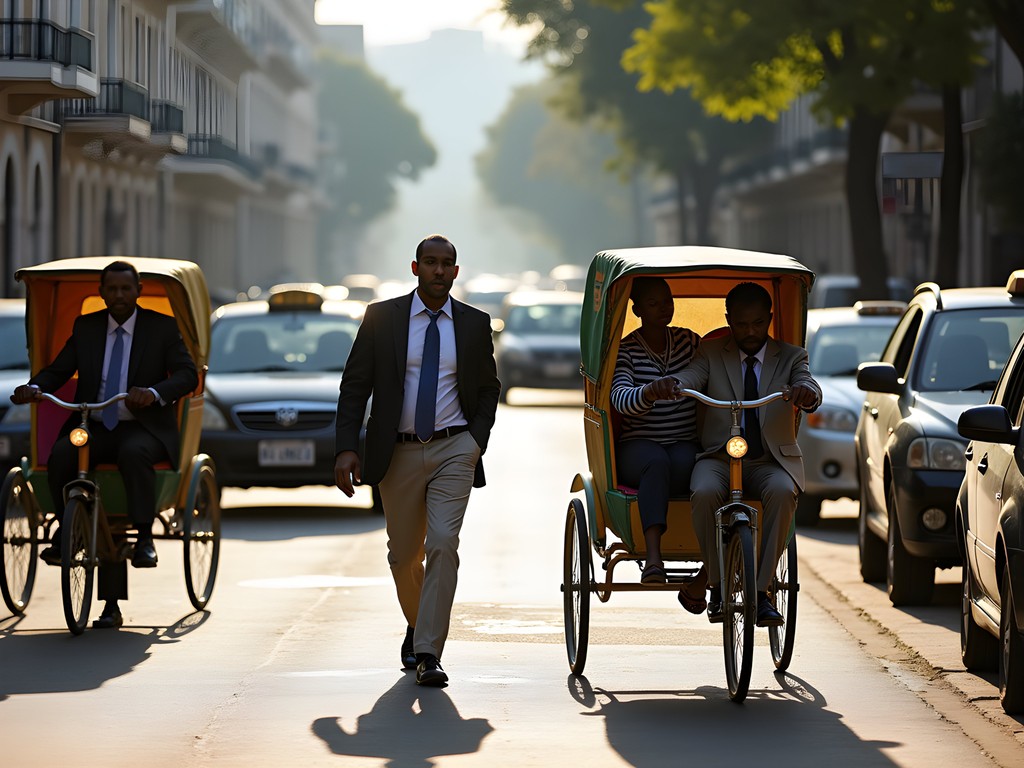
💡 Pro Tips
- Keep small denominations of Ariary for pousse-pousse fares and avoid negotiating through hotels, which typically add substantial markups
- For early morning departures, arrange transportation the evening before—morning availability can be unpredictable
- Save your hotel's business card with address in Malagasy to show drivers—street naming conventions can be confusing
Final Thoughts
Antsirabe represents Madagascar's evolving position in the global business landscape—a place where traditional craftsmanship and emerging industries create unique opportunities for the prepared business traveler. The volcanic highlands that give this city its distinctive climate also seem to infuse its business culture with a certain resilience and adaptability. As you navigate meetings and negotiations here, remember that relationships transcend transactions in Malagasy business culture. The time invested in understanding local contexts and building genuine connections will yield returns long after your departure. I've watched this highland city transform over two decades from a colonial spa retreat to a vibrant business hub while maintaining its cultural integrity—a balance that offers valuable lessons for sustainable development globally. Whether you're here for manufacturing partnerships, artisanal sourcing, or agricultural investments, approach Antsirabe with patience, preparation, and openness to unexpected opportunities that emerge between the scheduled meetings on your calendar.
✨ Key Takeaways
- Establish reliable connectivity solutions before arrival—redundancy is essential
- Invest time in understanding local business etiquette, particularly regarding time management and hierarchical respect
- Build relationships with key service providers (drivers, translators, hotel business centers) immediately upon arrival
- Balance formal business activities with productive cultural engagement through industrial visits
📋 Practical Information
Best Time to Visit
April-October (dry season)
Budget Estimate
$100-150 USD daily (excluding accommodations)
Recommended Duration
Minimum 5 business days
Difficulty Level
Advanced

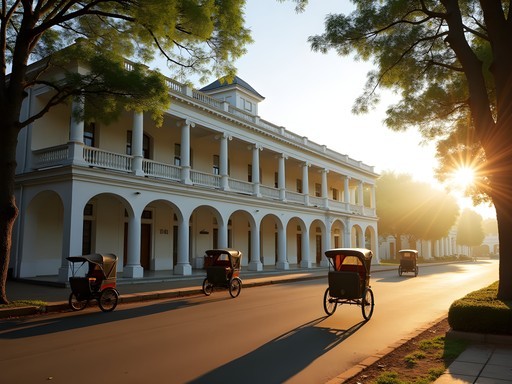



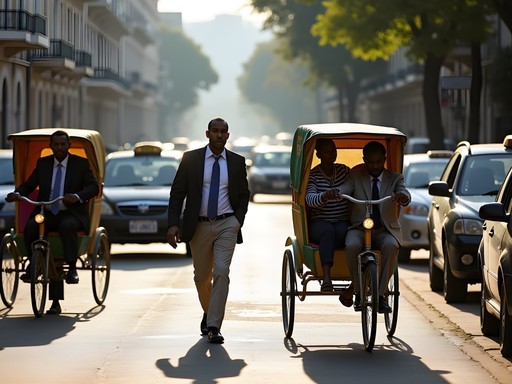


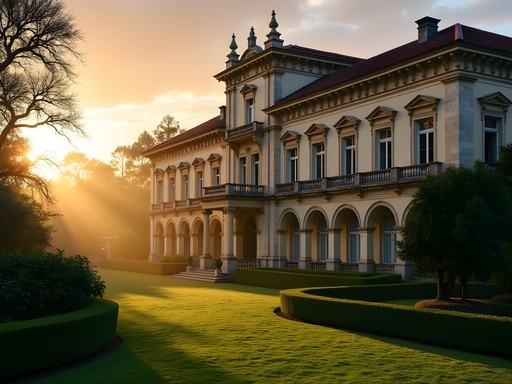
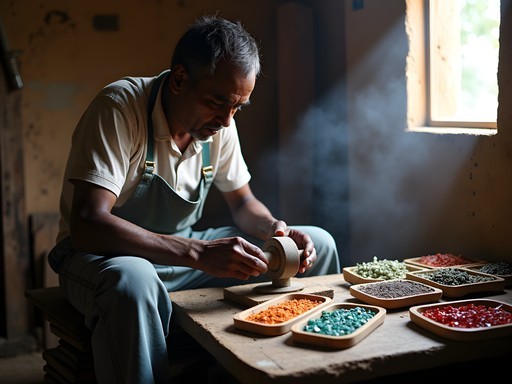
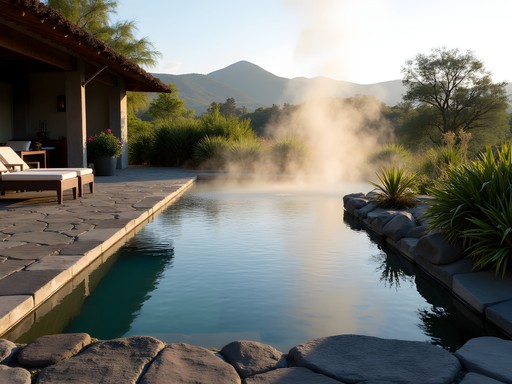
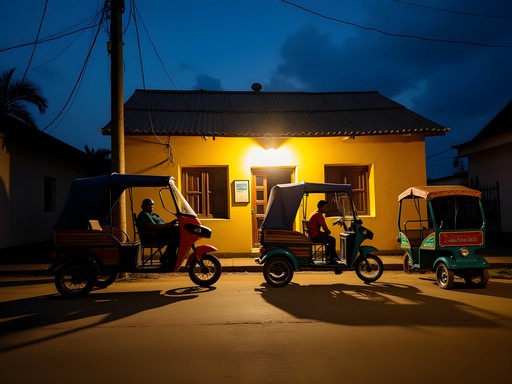

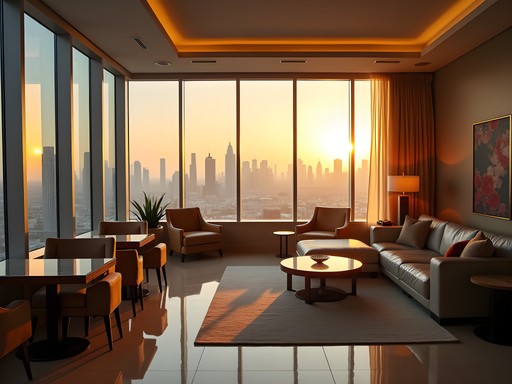
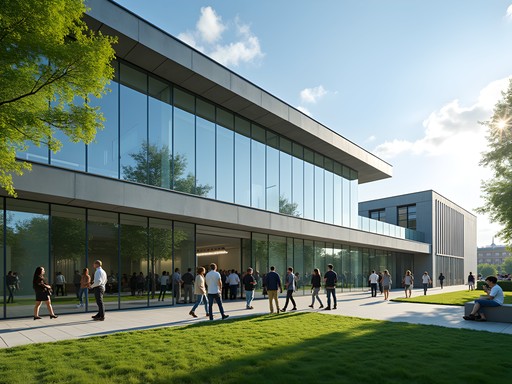

Comments
coffeeking
Anyone know if there are coworking spaces in Antsirabe? Or just cafes?
Nicole Henderson
No dedicated coworking spaces as of my last visit, but Hotel des Thermes has a business center that non-guests can use for a fee. Café Tsara and Zandina both have decent WiFi and don't mind laptop workers during non-peak hours.
moonstar
Nicole, your section on business etiquette was fascinating! Did you find it difficult to navigate the more formal business culture coming from a Western background? Any major faux pas to avoid?
Nicole Henderson
The biggest adjustment was definitely the pace! Business moves slower there, with relationships prioritized over immediate results. One mistake to avoid: rushing straight to business matters before proper personal connection is established. Always allow time for tea and conversation about family before diving into business topics.
Hayden Butler
Nicole, your piece brought back memories of my visit to Antsirabe last year. I was there consulting with some artisan workshops looking to export their crafts. The cultural etiquette section is spot-on! I learned the hard way about the importance of formal introductions. One tip I'd add - if you're meeting with local business owners, bringing a small gift from your home country is incredibly well-received. I brought some specialty chocolates from Atlanta, and it opened doors immediately. Also, I stayed at Royal Palace Hotel and found their business services surprisingly good. They arranged a driver who doubled as a translator for my factory visits, which was invaluable. I used my portable translator as backup, but having a human interpreter made negotiations much smoother.
moonstar
@Hayden - Was transportation between meetings difficult to arrange? I'm planning a similar trip focusing on textile producers.
Hayden Butler
Transportation was manageable with planning. I recommend arranging a dedicated driver through your hotel for business meetings - prices are reasonable for full-day bookings. The pousse-pousse (rickshaws) are fine for casual trips but not ideal when you're dressed for meetings or carrying equipment.
coffeepro
Those connectivity challenges sound rough! Not sure I could handle that for work travel.
roamchamp
OMG THIS IS EXACTLY WHAT I NEEDED!!! Heading to Antsirabe next week for a social enterprise project and was freaking out about what to expect. Your section on business etiquette just saved me from making some serious cultural blunders! THANK YOU!!! 🙏🙏🙏
roamexplorer
Great insights on Antsirabe! I'm heading there for a two-week business trip next month. How reliable is the internet at Hotel des Thermes that you mentioned? I'll need to join video calls with clients back in Europe.
Nicole Henderson
The WiFi at Hotel des Thermes is decent by Malagasy standards, but I'd recommend having a backup plan for important calls. I used a portable hotspot as insurance during my stay. The hotel also has a business center where the connection tends to be more stable than in the rooms.
roamexplorer
Thanks Nicole! That's really helpful. I'll look into getting a local SIM card for backup.
luckybackpacker
Love this different take on Madagascar! Always thought it was just for wildlife tourism. The pousse-pousse photo is so cool!
Jean Wells
Having spent three months consulting in Madagascar's highlands region last year, I found your assessment of Antsirabe's business climate remarkably accurate. One additional point worth noting is the seasonal variation in productivity. The rainy season (November-March) can significantly impact schedules and logistics. I'd recommend business travelers plan visits during April-October for optimal efficiency. The section on cultural intelligence is particularly valuable - relationship building truly precedes business transactions here. For accommodations, I found Royal Palace Hotel offered the most reliable business services, though their rates reflect this premium positioning.
luckybackpacker
Three months! That's commitment. Did you pick up any Malagasy language while there?
Jean Wells
@luckybackpacker Just the basics - greetings, numbers, and food-related phrases. Even that limited vocabulary made a significant difference in business relationships. The locals truly appreciate any effort to learn their language.
wanderpro
Love the photos of the morning light! Those highlands look magical.
coolexplorer
Just got back from Antsirabe last month! The Hotel Royal Palace was perfect for business - decent WiFi by local standards and they have meeting rooms. One thing Nicole didn't mention: visit the local zebu market if you have downtime! It's fascinating and a great way to understand local economy. Also found that business meetings often started 30+ minutes late - just plan for it and don't show frustration. The local mineral water industry visits were highlight of my trip!
Venture X
Premium card with 2X miles, $300 travel credit, Priority Pass